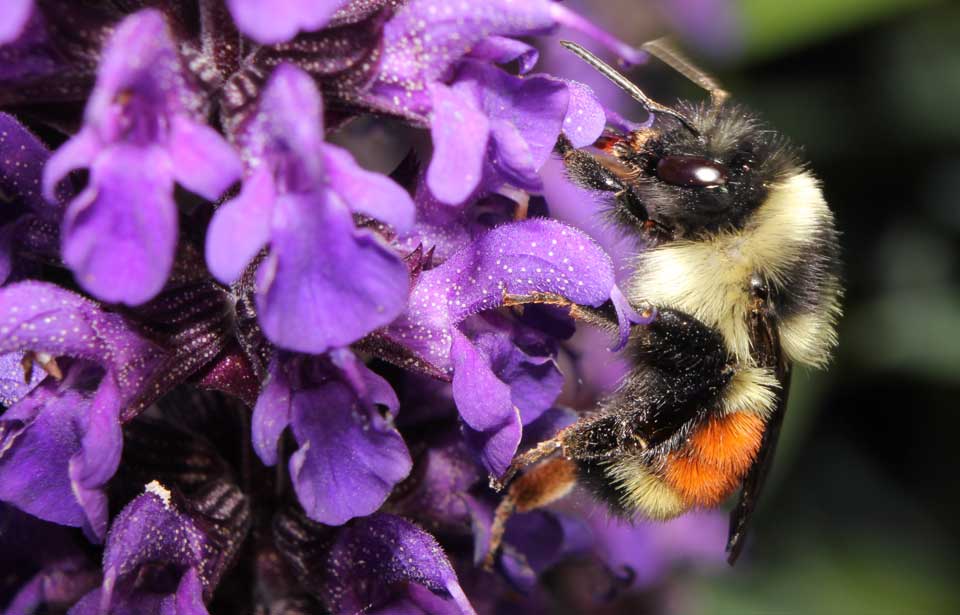Believe it or not, Canada has about 2,000 species of bees!
- There are not only honey-bees and bumble-bees but also leafcutter, carpenter, sweat, mason, orchard, and digger bees, to name a few. All are important pollinators.
- Some are tiny, and many don’t look especially bee-like.
- Most are solitary and live by themselves rather than in busy, buzzing hives.
- Some have long tongues, others short ones — depending on the blooms they drink nectar from.
- The honey-bee is not native to Canada, and the only bee species that braves the Arctic is the bumblebee.
- Bees usually only sting if we scare them by swatting them or by disturbing their homes.
Build a Bee Bungalow
Snug homes for solitary bee species are sometimes hard to find. Here’s how you can help:
- Leave dead trees and branches in heaps. These brush piles will make choice real estate for leafcutter and mason bees.
- Obtain several 8- to 13-cm-thick blocks of wood (scrap lumber is fine).
- Drill holes about 90 per cent of the way into the blocks, 3 to 8 mm in diameter, and spaced 1 to 2 cm apart.
- Hang your bee bungalows in a shady, dry spot under the eaves of a house or shed in early spring.



